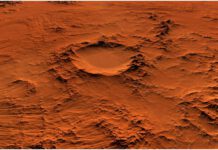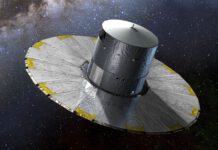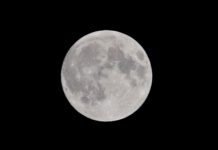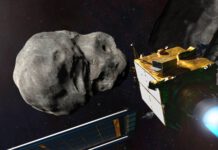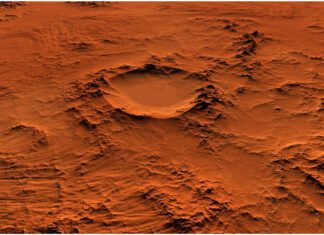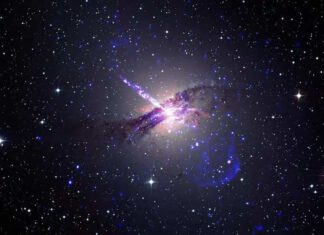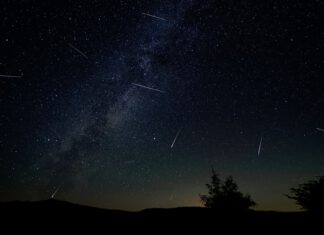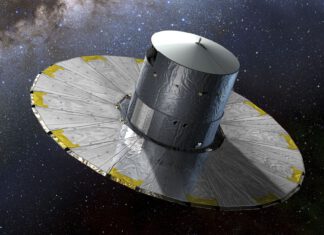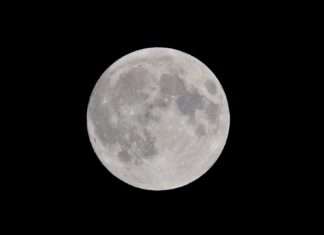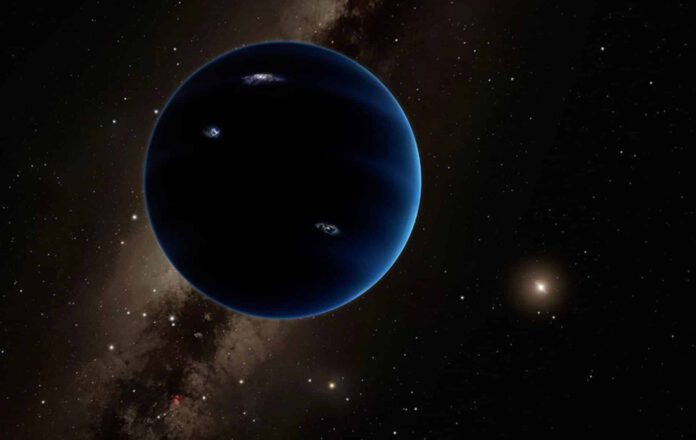
In 2016, American researchers claimed that there may secretly be a ninth planet in our solar system. It is believed to exist in the outer regions of our solar system, far beyond the orbit of Neptune, and five times the size of Earth. Almost eight years later, this ‘Planet 9’ still remains undiscovered and unanswered questions remain: Does it exist or not? The ongoing indecision sparks the interest of scientists all around the world.
The hypothesis
In January 2016, global news headlines were filled with an exciting proposition: astronomers Konstantin Batygin and Mike Brown announced that they had found strong evidence suggesting that our solar system consists of not eight, but nine planets. Their conclusions were not based on direct observations of the planet but on the unusual movements of six objects in the Kuiper Belt – a vast collection of cometary-like objects located beyond the orbit of Neptune. All six objects have elliptical orbits but follow the same direction in physical space, leading to their perihelion (the point in their orbit closest to the sun) at almost the same angle and location. The chances of this being a coincidence were only 0.007 percent, according to Brown. Therefore, it was proposed that their paths were being influenced by the presence of a ninth planet.
Skepticism
However, not everyone accepted Brown and Batygin’s theory without question. Simon Portegies Zwart, an astronomer associated with the Leiden Observatory at Leiden University, had his doubts. He was skeptical of the strong language used by the researchers in referring to their ninth planet hypothesis as “evidence” – a bold statement in scientific terms. He argued that the evidence was not definitive; it merely hinted at the possibility of the existence of a ninth planet.
Follow-up Research
Fast forward almost eight years, and the existence of Planet 9 still remains doubtful. Further studies have demonstrated that the unusual movements of Kuiper Belt objects could be explained without the need for a ninth planet. For instance, some studies suggest that the gravitational influence of the Oort Cloud (a hypothetical cloud filled with cometary-like objects surrounding our solar system), could account for the unusual orbits of the Kuiper Belt objects.
Biased search?
There’s also the question of objectivity in the search for Planet 9. Most of the Kuiper Belt objects have been discovered when their elliptical orbits bring them closer to the sun. Some experts argue that the apparent clustering of orbits may simply be a result of this selective observation pattern. The real situation may be that we discover most Kuiper Belt objects close to the sun simply because we can see them better there. Some suggest that the perceived clustering is an illusion – a byproduct of a selective search, overlooking many other Kuiper Belt objects that, due to their differently oriented orbits, escape our observation.
A shaky hypothesis
Due to these factors, the Planet 9 hypothesis seems less convincing now than it initially did. Yet, this has not deterred its proposers from actively searching for the elusive planet. Despite the lack of definitive results, they maintain that given the massive size of our solar system and the hypothetical planet’s distance from Earth, finding it is akin to searching for a needle in a haystack.
Looking to the Future
The Vera C. Rubin Observatory, currently being built in Chile, is tailor-made to observe a large portion of the sky and map small objects in our solar system, including Kuiper Belt objects. If Planet 9 does exist, this observatory will have an excellent chance of detecting it. Until it opens its eyes, estimated to be in 2025, the fate of Planet 9 hangs in the balance.
The bigger picture
All these ongoing discussions and debates about the existence of Planet 9 are not just about feeding the egos of certain individuals or groups. They also play a crucial role in enhancing our understanding of the solar system itself. Even if Planet 9 turns out to be non-existent, the search for it allows us to question, explore, and gain better insights into the workings of the solar system. The ultimate goal is to understand the very origin of the solar system, and by extension, ourselves; something about which the existence of Planet 9 pales in comparison.

